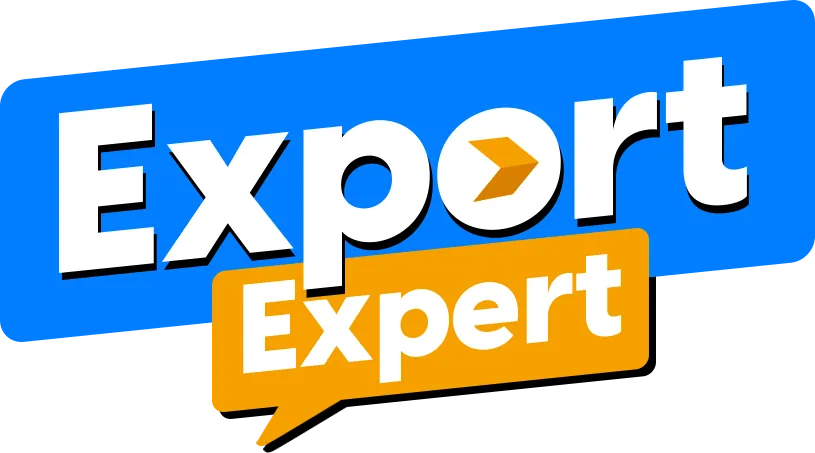The global toy and baby care industry is expanding rapidly, and France has become one of the most promising destinations for Indian exporters. In recent years, demand for safe, sustainable, and innovative children’s goods has surged, creating new opportunities for Toys and Baby Products India to France. From handcrafted wooden toys and plush playthings to educational products and organic cotton baby garments, Indian manufacturers are increasingly catering to French buyers who prioritize quality, compliance, and eco-friendly production.
From wooden educational toys and plush playthings to organic cotton baby garments, India is well-positioned to supply France with quality goods at competitive prices. But tapping into this lucrative market requires more than just having the right products. Exporters must understand HS codes, customs tariffs, VAT rules, CE marking regulations, CIF value calculations, and France’s import ecosystem.
This detailed guide walks you through every aspect of exporting toys and baby products from India to France, from regulations and documentation to market insights and importer partnerships.
Why France is a Key Destination for Indian Exporters
France’s toy and baby product market is not only vast but also highly diversified. According to trade reports:
- The French toy market is valued at over €3 billion annually, with seasonal spikes around Christmas and summer holidays.
- The baby product segment (garments, accessories, feeding products, furniture) exceeds €1.3 billion in yearly sales.
- A growing share of parents are prioritizing eco-friendly, educational, and organic products.
French buyers increasingly prefer:
- Montessori-inspired wooden toys that enhance learning.
- Plush toys made with hypoallergenic, non-toxic materials.
- Educational toys that integrate play with cognitive development.
- Organic cotton baby garments, particularly GOTS-certified apparel.
- Products with eco-friendly packaging and sustainability credentials.
For Indian exporters, this trend aligns perfectly with strengths in handcrafted toys, sustainable textiles, and competitively priced manufacturing.
HS Code for Toys and Baby Products India to France
Correctly classifying goods with the HS code for toys and baby products is critical for customs clearance in France. Here are some common codes:
- 9503.00 – Tricycles, scooters, pedal cars, dolls, puzzles, and similar toys.
- 9504.50 – Electronic toys and video game consoles.
- 9403.70 – Wooden children’s furniture and play structures.
- 6209.20 – Baby garments made of cotton (including organic cotton).
- 4202.92 – Diaper bags and baby carriers.
Export Expert: Cross-check HS codes on ICEGATE (India) and the TARIC database (EU) to avoid misclassification, which can lead to penalties or delays.
France Customs Duties and Import Tariffs
France applies the EU Common Customs Tariff (CET) to imported goods. Here’s what Indian exporters should know:
- Toys: Duty rates usually range between 0% and 4.7%.
- Baby garments: Duties vary from 8% to 12%, depending on material type.
- Preferential tariffs: India may qualify for reductions under certain EU trade arrangements.
In addition to customs duties, importers must pay VAT on imports in France:
- Standard VAT rate: 20%
- Reduced VAT rates (5.5% or 10%) may apply for certain child-related products.
CIF Value Calculation for Toys and Baby Products India to France
Customs duty and VAT in France are calculated on the CIF (Cost, Insurance, Freight) value.
Example:
- Value of wooden educational toys: €10,000
- Insurance: €500
- Freight: €1,000
- CIF Value = €10,000 + €500 + €1,000 = €11,500
Customs duty and VAT are then applied on this €11,500. Accurate calculation ensures you and your French buyer price products competitively.
Compliance Standards: CE Marking and EU Directives
All toys and most baby products must carry CE Marking before entering the French market. This certifies compliance with EU safety, health, and environmental standards.
Key Regulations for Toys and Baby Products
- EU Toy Safety Directive 2009/48/EC – The main legal framework.
- EN 71 Standards:
- EN 71-1: Mechanical and physical properties.
- EN 71-2: Flammability.
- EN 71-3: Migration of harmful elements (lead, cadmium, etc.).
- EN 71-1: Mechanical and physical properties.
- EU Baby Product Standards – Cover strollers, cribs, feeding bottles, and more.
- EU REACH Regulation – Controls chemicals in plastics, dyes, and textiles.
- Product Conformity Assessment – May require a Notified Body for CE marking to issue third-party certification for toys.
Without CE marking, goods will be rejected by French customs.
Digital Product Passport EU – The Future of Compliance
The upcoming Digital Product Passport (DPP) initiative under the EU Green Deal will require exporters to digitally document:
- Product safety certifications.
- Material composition.
- Recycling and sustainability data.
- Supply chain transparency.
Exporters who adopt digital traceability early will have a competitive edge.
Export Documentation for Toys and Baby Products India to France
Proper documentation ensures smooth customs clearance. Indian exporters need:
- Commercial Invoice – Includes HS code, value, and Incoterms.
- Packing List – Number of cartons, weight, dimensions.
- Certificate of Origin (COO) – Helps qualify for tariff benefits.
- Bill of Lading (B/L) or Airway Bill (AWB) – Transport contract.
- Insurance Certificate – For CIF shipments.
- DGFT IEC Code – Mandatory exporter registration in India.
- EORI Number – Required by French importers for customs clearance.
Some French buyers may also request EN 71 compliance test reports upfront.
Packaging and Labeling Rules in France
Compliance extends to packaging and labeling. Requirements include:
- French language labeling is mandatory.
- Age warnings (e.g., “Not suitable for children under 36 months”).
- Material composition (especially for baby garments).
- Country of origin marking (Made in India).
- Eco-friendly packaging to meet EU waste directives.
Sustainable packaging can increase product appeal among French consumers.
Indian Export Promotion Councils
Exporters can seek support from industry bodies:
- EPCH (Export Promotion Council for Handicrafts) – For wooden toys and handicrafts.
- AEPC (Apparel Export Promotion Council) – For baby garments.
- Toys Association of India – Industry updates and buyer connections.
These councils provide market insights, organize trade fairs, and connect exporters with international buyers.
Freight Forwarding Services India–France
Efficient logistics is crucial.
- Sea Freight: Best for bulk shipments (Mumbai, Chennai → Le Havre, Marseille).
- Air Freight: Faster but more expensive (Delhi, Bangalore → Paris Charles de Gaulle).
Experienced freight forwarding services can help with:
- Customs clearance.
- CIF calculations.
- Insurance.
- Warehousing in France.
Identifying French Importers and Distributors
Building partnerships with reliable distributors is the key to scaling.
Leading French Importers and Buyers:
- NEWORCH – Specializes in innovative children’s products.
- Carrefour Import Sas – Global retail giant sourcing toys and apparel.
- CWF (Children Worldwide Fashion) – Distributor for branded children’s apparel.
Other opportunities include French toy importers and French baby product distributors who cater to supermarkets, boutiques, and online retailers.
B2B Trade: Connecting India with France for Toys and Baby Products
The B2B trade France–India corridor is expanding rapidly. Exporters can strengthen partnerships by:
- Offering organic cotton baby garments with certifications.
- Supplying wooden toys tested for EN 71 standards.
- Participating in trade shows like Maison & Objet (Paris) or Spielwarenmesse (Germany).
- Listing products on EUROPAGES, Alibaba, and Global Sources.
Common Mistakes When Exporting Toys and Baby Products India to France
- Skipping CE marking requirements.
- Using wrong HS codes, causing customs delays.
- Forgetting French language labeling.
- Underestimating shipping and VAT costs.
- Ignoring French consumer trends (eco-friendly demand).
Financing and Risk Management
Exporting involves risk. Options for Indian exporters include:
- Export Credit Guarantee Corporation (ECGC) – Protects against buyer default.
- Letter of Credit (LC) – Ensures secure payments.
- Export factoring services – For better cash flow.
- Marine insurance – Protects against transit risks.
Sustainability: A Competitive Edge
France places strong emphasis on sustainability. Exporters can differentiate by:
- Highlighting organic cotton garments (GOTS-certified).
- Offering FSC-certified wooden toys.
- Using biodegradable packaging.
- Adopting fair trade practices.
These attributes resonate strongly with French parents and retailers.
Conclusion
Exporting toys and baby products from India to France presents significant opportunities, but only if exporters navigate the process effectively. From identifying the HS code for toys and baby products, calculating the CIF value, and paying the right French customs duties and import tariffs, to complying with CE marking, EU Toy Safety Directive 2009/48/EC, and EN 71 standards, every step is crucial.
By leveraging the support of Indian export promotion councils, partnering with French toy importers and baby product distributors, and showcasing sustainability credentials, Indian businesses can establish themselves as trusted suppliers in France.
With demand rising for wooden toys, plush toys, educational toys, and organic cotton baby garments, Indian exporters are uniquely positioned to thrive in the French market. Success lies in quality, compliance, and building strong B2B trade relationships.
FAQs
Toys and Baby Products India to France export typically covers wooden toys, plush toys, educational toys, and organic cotton baby garments. These are among the most in-demand categories in the French market.
France follows the EU Common Customs Tariff. Customs duties on Toys and Baby Products India to France range between 0% and 12%, depending on the HS code and product type.
Yes. CE marking is required for all toys and many baby products. Exporters must comply with the EU Toy Safety Directive 2009/48/EC and EN 71 standards before shipping Toys and Baby Products India to France.
Exporters need a Commercial Invoice, Packing List, Certificate of Origin, Bill of Lading, DGFT IEC code, and compliance certificates for Toys and Baby Products India to France shipments.
The CIF value includes the product cost, insurance, and freight. Customs duties and VAT in France are applied to this CIF value for Toys and Baby Products India to France.








